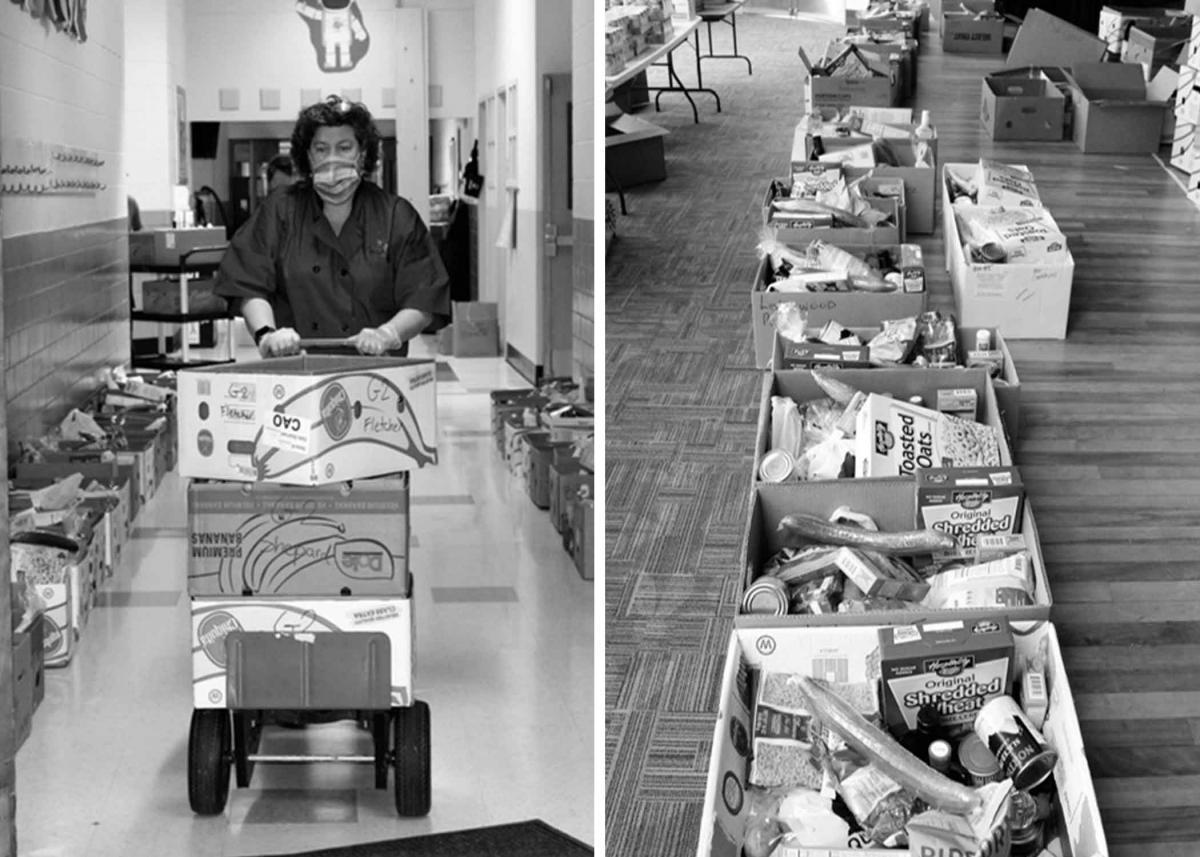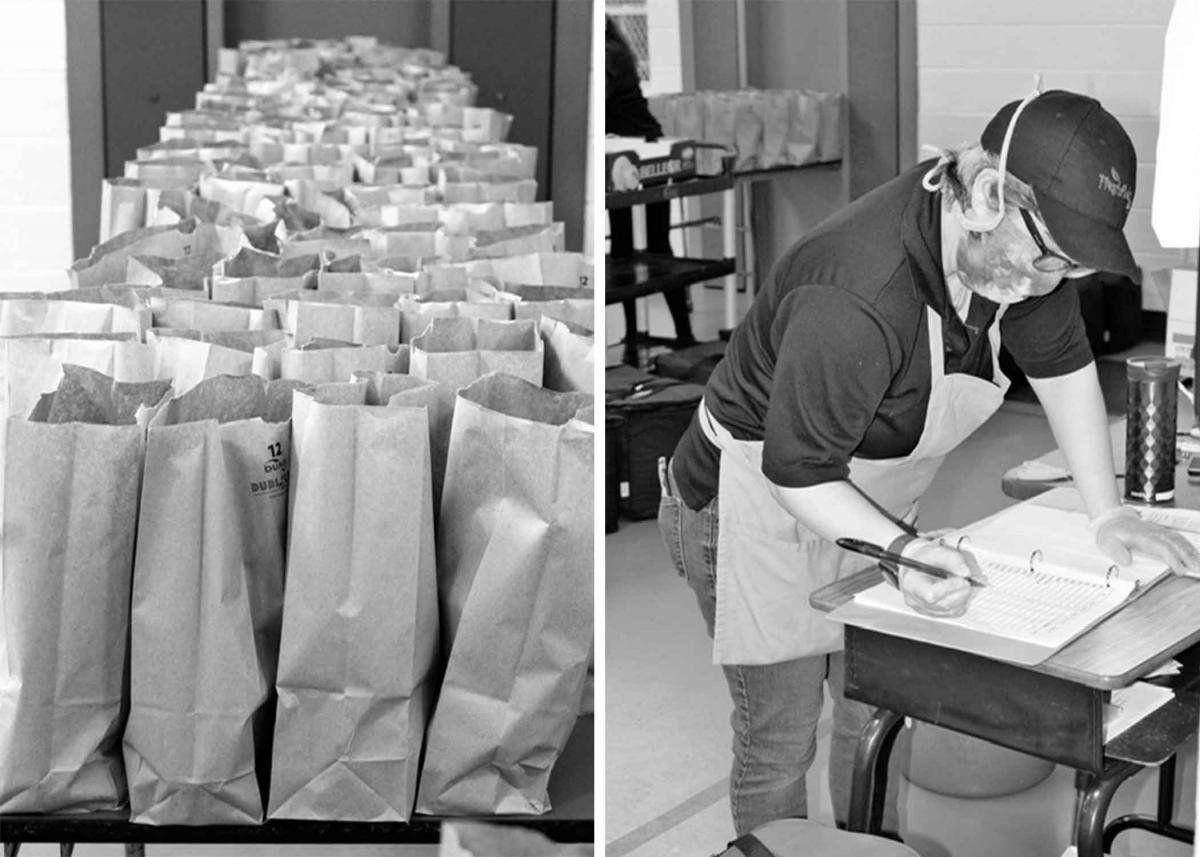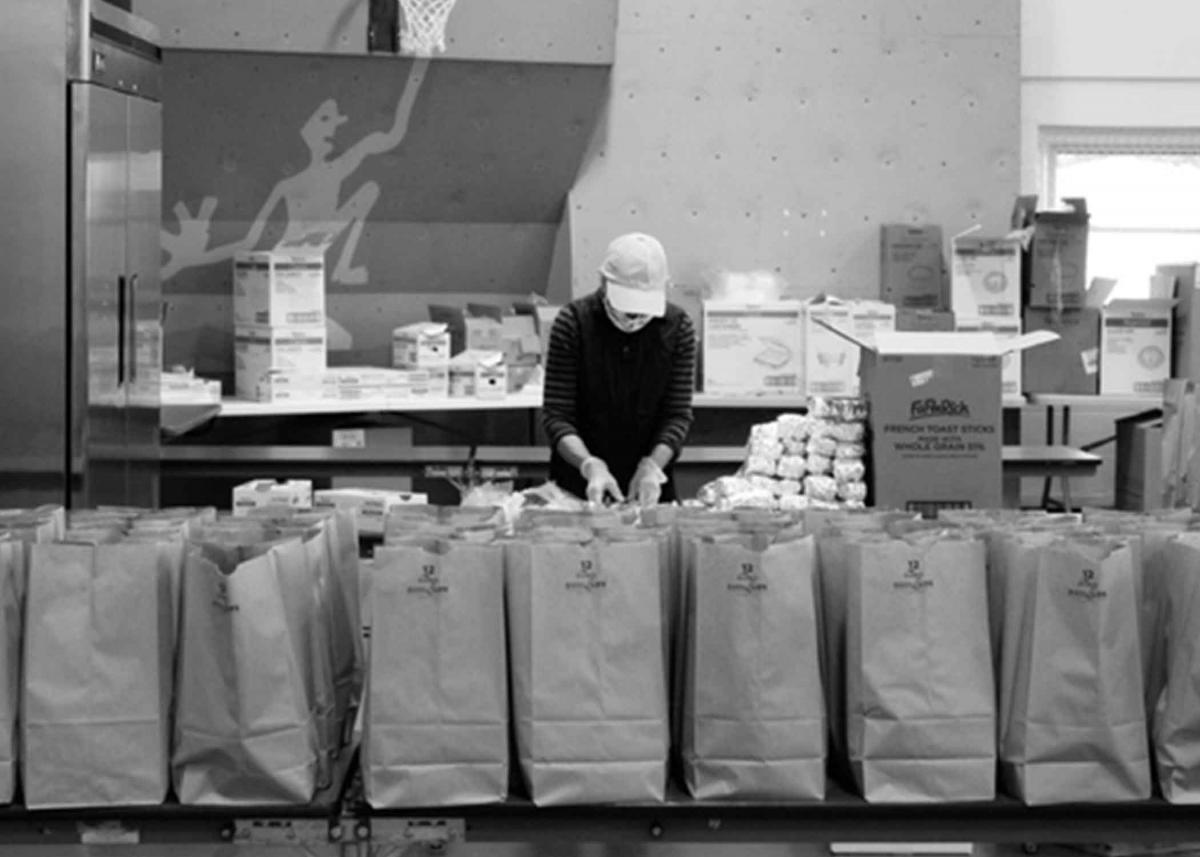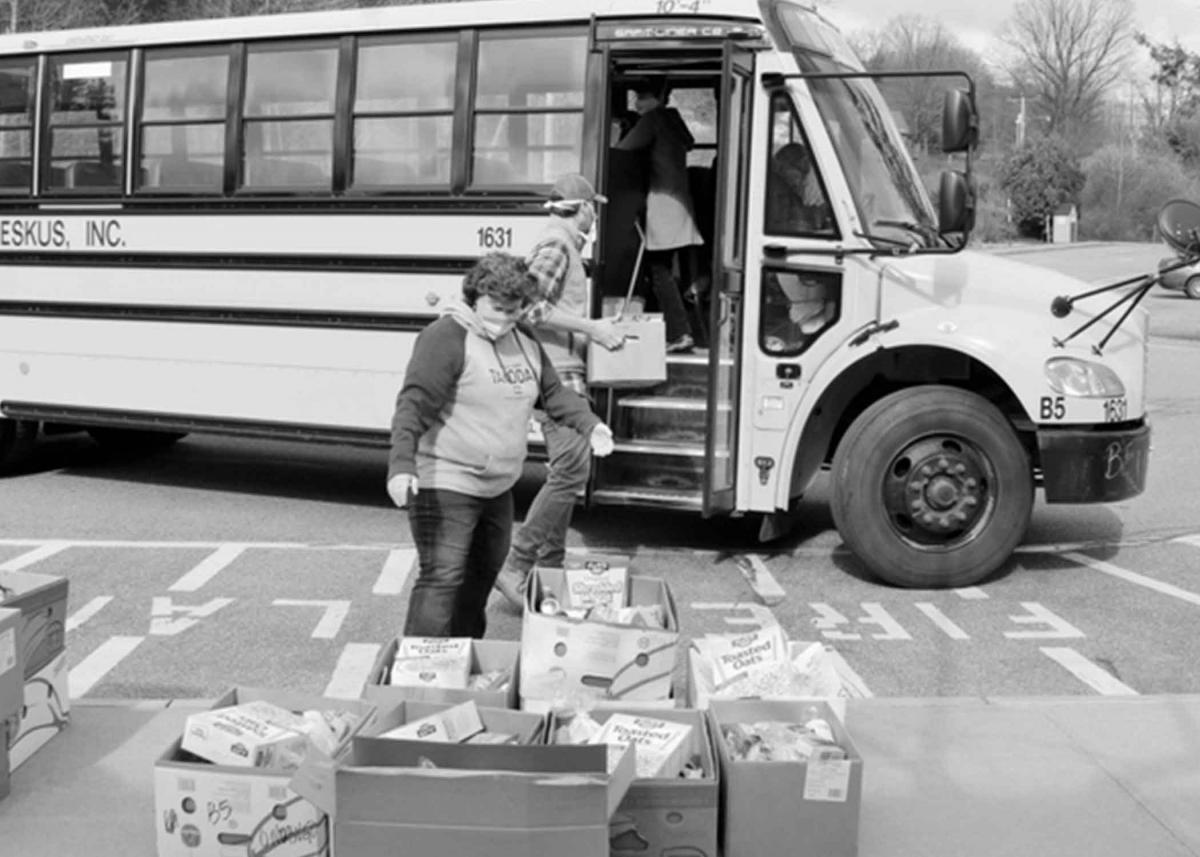A Farm to School Update with Vermont FEED Leadership
Posted on May 11, 2020
On Sunday, March 15, Vermont Governor Phil Scott issued an Executive Order to close schools, in which he required all districts to continue offering meal service during closures. By Wednesday, March 18, all schools were closed. By Thursday, March 19, most districts were offering meal service by delivery or grab-n-go models. By Monday, March 23, ALL districts in Vermont were offering meal service in some form. That is a remarkable mobilization to keep kids fed during this emergency.
Today’s crisis has shone a light on the incredible work done by school nutrition staff. When schools closed their doors, they had less than a week to completely reimagine their distribution models and keep students fed and nourished. This work has always been happening behind the scenes — it takes an incredible amount of foresight, organization, and skill to run a successful school meal program under normal circumstances.
We're working closely with school nutrition staff, educators, community partners, and farmers to navigate this unprecedented situation. Vermont FEED leadership, Betsy Rosenbluth and Helen Rortvedt, speak on how we’re addressing the crisis while maintaining momentum toward long-term change.

How are Vermont school nutrition programs adapting and responding to school closures and keeping kids fed during this critical time?
HR: This has been an emergent situation, and schools have quickly rolled out a number of different service models. Schools are being really creative and using existing bus routes to deliver meals and school materials on a predictable schedule. A number of schools are using a grab-and-go format, where you can pick up breakfast and lunch for the day, or several days. There's so much creativity in figuring out what families need and how schools, which are such a vital part of the community, can help to provide that.
For instance, the school district in Brattleboro partnered with the local food bank, Ground Works, and Food Connects to put together grocery boxes for families in need. They delivered the boxes along with school meals on the bus. It’s a great example of multiple community partners coming together to serve the community. These school meals sites and school bus delivery networks are now a lifeline, and the schools are able to lean on their Farm to School partners to serve their communities in a really meaningful way.
What policies have temporarily changed to make sure children are being fed?
HR: Perhaps most notably, the USDA has approved Vermont’s request for an “area eligibility” waiver. This allows any child, from ages 0–18, to receive school meals for free, no questions asked, and no paperwork required. We’ve effectively moved to a universal meal system, and, for the first time, communities across the state are experiencing firsthand how meaningful that is for families that are struggling.
When school nutrition programs are relieved of the administrative burden of keeping track of who qualifies for free meals and who pays, they're able to focus on what's really important: feeding healthy food to kids. That's a little bit of a bright spot in all of this.
BR: Right now, we're seeing what it's like when you don't have to decide which kids get free meals and which don't. It just makes sense to say, “If you need these meals, these meals are available for your kids. As a community, we're going to feed our kids.” I don't think the federal government is ready for this, it’s hard to flip a switch on such a complicated system, but we're hoping that Vermont will be a leader in the movement for universal school meals.

How are the school closures affecting farmers?
HR: Overall, this crisis has been really tough on farmers. They are losing access to all kinds of markets, not just school accounts. And then, of course, there are also new opportunities amid the chaos. Farmers, just like school nutrition professionals, and like many Vermonters, are incredibly resilient, creative, and adaptable.
Schools have had to significantly change their menus in order to send meals out on the bus or through pickup sites. Most schools are serving foods that are easier to prepare and package. Unfortunately, that often means using fewer local products. We're working to identify local products that fit with the new meal model. But really, our work is to continue to support and strengthen those school-farmer relationships so they can withstand this disruption.
What are we learning about the food system right now in terms of school food?
HR: This whole crisis is really shining a light on the faults in our local food system— how brittle it really is. Vermont schools haven't experienced major disruptions in their supply chains, but there are certainly products that aren't showing up with their orders. Those supply chain disruptions are likely to become more and more prevalent as the crisis goes on. And those disruptions will continue to demonstrate how important it is to reduce our food miles: it's a lot easier to pivot when you're only transporting food across your county or across your state as opposed to across the Rocky Mountains!
BR: It shouldn’t be as difficult as it is to get local food from the farm just up the road to the kids from that same community. The challenges in our distribution system and the inadequate reimbursement levels from the federal government really constrain the amount of local food that schools buy.

How is the Vermont Farm to School Network advocating for local food in school meals?
BR: We're really lucky to have such strong networks in Vermont— we have long-standing relationships and trust. So in a time of crisis, we can quickly mobilize and use each other's strengths. The Vermont Farm to School Network partners and the Agency of Education worked quickly to figure out what waivers school nutrition programs needed to have, and what policies need to be in place to feed all kids.
We’re discussing a lot of opportunities that can help the situation now and will be equally valuable when this is over. For example, we would like to offer schools a higher reimbursement rate for meals when they incorporate higher amounts of local food. Such a bill recently passed out of the Senate Agriculture Committee before the legislature went remote, and we're still hoping to get a policy that would incentivize local food.
How is Vermont FEED working regionally on these issues?
BR: Vermont FEED supports a collaborative of Farm to School leaders from the six New England states, plus New York: The Northeast Farm to School Collaborative. Collectively, we want to move towards a more equitable system that includes universal meals and higher reimbursements for local purchasing by schools so all kids can have access to fresh, healthy food across the Northeast, with a connection to where that food comes from and why it is so important. We have a shared food supply chain, so that's a really important conversation to be having regionally.
We've also launched a social media campaign, #CommunitiesFeedKids, to collect and share stories about the incredible work school nutrition programs are doing across the region in the face of COVID-19.
How is Vermont FEED supporting educators right now?
BR: We’re transforming our professional development programs from in-person workshops to virtual. We recently accepted the school district teams for our Northeast Farm to School Institute. The replies we got back from teachers showed so much excitement about having something positive to look forward to, and we’re equally excited to keep working with schools to move their farm to school programs to the next phase with their students.

What is one thing you hope people remember after the crisis is over and we find a “new normal”?
BR: The crisis has shown how critical school food programs are. School nutrition directors were on the cover of Time Magazine! That's exciting, except that it shouldn't take a crisis of this heartbreaking magnitude to recognize how important these programs are. So, while we’re providing support during this emergency, we’re also doing the advocacy work to say, “Let's not go back to a system where people and a profession really aren't valued, paid fairly, or given the professional learning opportunities they need.” We need to maintain this recognition of the importance of school nutrition programs for student success.
HR: This is a really unique moment in time; people are realizing the value of a universal meals model. Hopefully it will bring more advocates to the table, and more voices will be lifted up in support of universal meals in every Vermont school.
What can people do to support their school nutrition program?
HR: If you or someone you know has recently had a change in income or your living expenses have gone up as a result of COVID-19, you should consider applying for free and reduced price meals at your school. A lot of people are surprised to learn they do qualify. Also, that is a huge support for your school’s ability to continue offering programs like universal meals, after school meals, free summer meals, accessing federal Title 1 funds, and other benefits. There are a lot of schools in Vermont that are right on the cusp of qualifying to offer these programs, and they just don't quite have the documentation of their community need in order to do so.
You can also contact your legislators or write a letter to your community newspaper advocating for continued support for school nutrition programs and, in particular, policies like the local purchasing incentive.
BR: If you have the capacity to make a donation to any organization across the food system, we're really all working together, so your support will go a long way.
When you see amazing work happening in your community to feed kids, take a picture, share the story on social media, and use the hashtag #CommunitiesFeedKids. Appreciating your local farmers, school nutrition staff, and teachers is more important than ever, and people are doing it in such creative ways. We don’t want to forget that.
All photos from Fresh Picks Café/Brattleboro Schools Food Service Director Ali West.